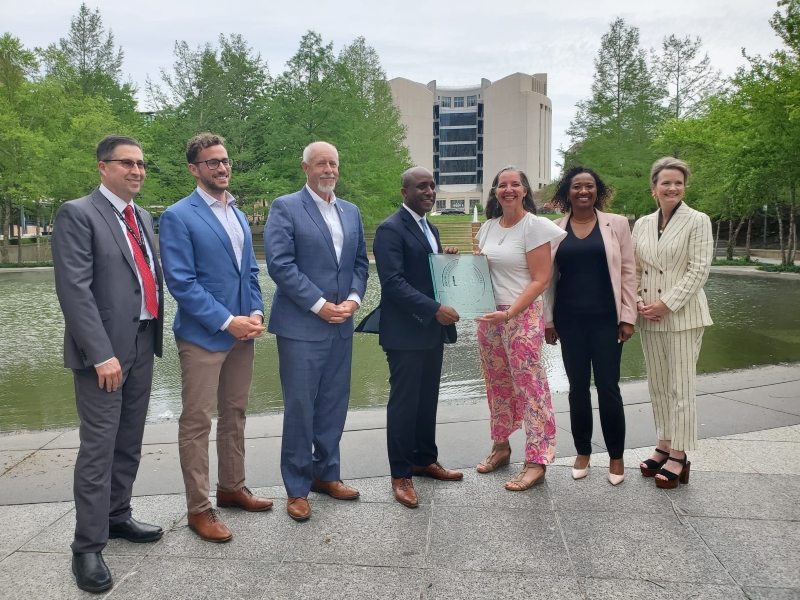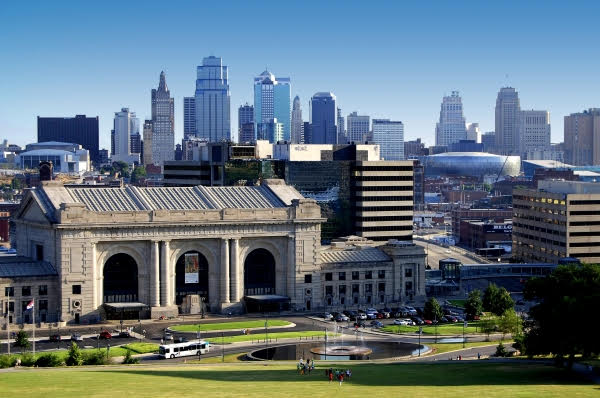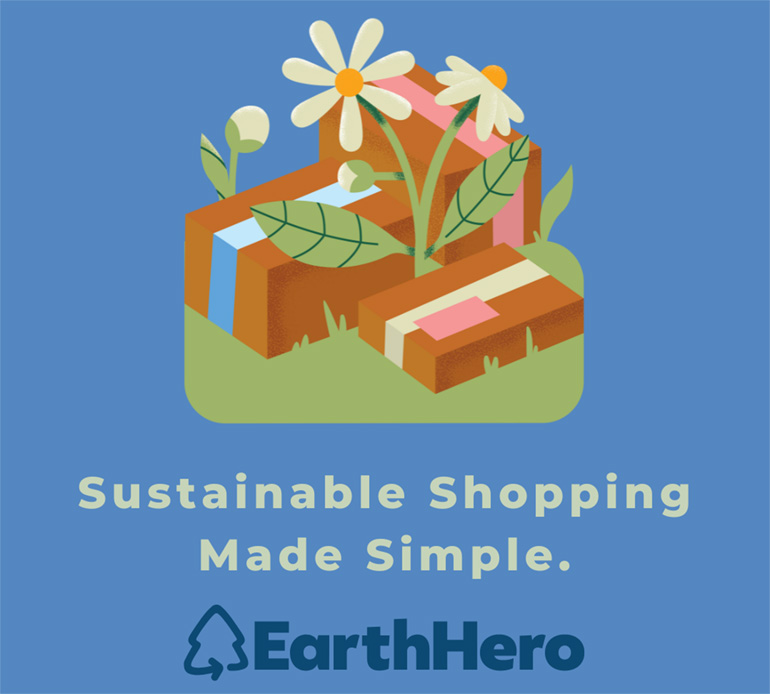City recognized for its sustainability and commitment to a greener future
The City of Kansas City, MO has achieved a new level of sustainability leadership with the LEED for Cities rating system for local governments. On Tuesday, the city announced it has achieved LEED Gold.
Kansas City is part of a growing group using the LEED for Cities and Communities framework to measure and manage sustainability performance. LEED, by the U.S. Green Building Council (USGBC), is catalyzing a new generation of inclusive, healthy, high-performance, sustainable cities worldwide.
“Kansas City has taken several steps to help us reach our goal of climate neutrality for city operations by 2030. Our goal is to reach climate neutrality by the year 2040,” Mayor Quinton Lucas said. “We’ve already seen great successes at City Hall, we’ve reduced our greenhouse gas emissions by nearly 25%. We’re working with community partners to ensure we’re building a more resilient energy system for the future.”
Kansas City achieved LEED for Cities certification for implementing practical and measurable strategies and solutions to improve sustainability and residents’ quality of life. The certification helps jurisdictions achieve high performance in critical human and environmental health areas. Kansas City started the application process in 2021. During the process, Kansas City provided data on its waste diversion, water management, land use, and greenhouse gas emissions.

Andy Savastino, KCMO Chief Environmental Officer; Brian Platt, City Manager; Kevin O’Neill, Council Member; Quinton Lucas, Mayor of Kansas City, MO; Hilari Varnadore, Vice President for Cities at USGBC; Ryana Parks, Council Member; Andrea Bough, Council Member. Photo courtesy of USGBC Central Plains
Achieving the Gold Level
Below are some of the sustainable initiatives that helped the city achieve the Gold level:
Climate Protection and Resiliency Plan – Kansas City’s Climate Protection and Resiliency Plan (CPRP) is an equity-centered roadmap to help the city reduce greenhouse gas emissions and achieve climate neutrality for city operations by 2030 and citywide by 2040. This plan builds on the 2021 KC Regional Climate Action Plan by identifying and developing climate action strategies in the Northland, Central Kansas City, and South Kansas City.
Renewable Energy – This program allows the city to offset a percentage of its energy usage through a renewable resource. In 2019, the City Council approved an ordinance to execute Renewables Direct Participation Agreements to purchase renewable energy. Cimarron Bend III, the wind resource, accounts for 20% of the city’s electricity usage. As a result, the city has avoided approximately $900,000 in energy costs and generated an additional $536,152.84 to be credited to the city since the program began. It intends to use those funds to implement the City’s Climate Protection & Resiliency Plan.
Energy Empowerment Benchmarking Program – This ordinance requires that city-owned properties greater than 10,000 square feet and non-city-owned properties greater than 50,000 square feet report energy and water consumption using the ENERGY STAR Portfolio Manager online analysis tool. Analysis results are used to determine energy consumption rates across property types and identify areas in which building owners in Kansas City, Missouri, excel in property energy efficiency and which areas need improvement.
Electric Fleet Conversion – Kansas City’s City Manager signed a policy to change the city’s vehicle purchasing policy to full-battery, all-electric vehicles where available. Although the municipal fleet produces approximately 15% of the city’s GHG emissions, electrification of the fleet is necessary to reach the city’s goal of carbon neutrality for municipal operations by 2030.
LED Streetlight Conversion – The city owns and operates nearly 100,000 streetlights citywide. The plan is to convert close to 90,000 streetlights to energy-efficient LEDs. LED streetlights have a longer lifespan, have lower maintenance costs, and use up to 50% less energy than standard bulbs.
Blazing a trail
The city adds this certification to its growing list of LEED designations and efforts toward its climate action plan.
“Kansas City is blazing a trail towards a more sustainable future, always seeking innovative, collaborative, and creative approaches to meet our sustainability goals,” Kansas City’s Chief Environmental Office Andy Savastino said.
Other ways that the city is blazing the trail to meet its climate goals include:
- In 2022, the city adopted the most energy-efficient building codes in the country that will go into effect in July.
- In 2019, it became the first large U.S. city to implement free bus fare.
- The Kansas City International Airport terminal project achieved LEED Gold certification in 2023, is powered by 100% renewable energy, and featured many innovations including becoming the first U.S. airport to feature wireless electric bus charging.
- The proposed KCI Solar Farm could become the largest municipal solar farm in the country with the capacity to power 70,000 homes.
“Achieving the esteemed Gold Certification through LEED for Cities is a testament to our unwavering dedication to pursuing a triple-bottom-line strategy, where we strive to attain social equity, economic vitality, and environmental quality within our community,” Savastino said. “We are committed to creating a more resilient and sustainable City for our current and future residents.”
About LEED for Cities
Kansas City, MO is the first city in Missouri to achieve this LEED for Cities certification. Within the region, it joins Johnson County, KS that achieved LEED Gold in 2022. The City of Lawrence, KS also recently announced it has started the certification process.
The local governments are part of a global network of nearly 130 local governments certified in LEED for Cities and committed to continuous improvement and accountability.
“Kansas City understands the value of LEED and through certification is setting goals and deploying strategies that are appropriate for their local community and residents,” USGBC President and CEO Peter Templeton said. “Each new LEED certification is one step closer to revolutionizing the places where we live, learn, work and play.”
The U.S. Green Building Council (USGBC) is committed to a healthy, resilient and equitable future for all through the development of green buildings, cities and communities. For more than 20 years, USGBC has been advancing green building practices through the development of LEED, the world’s most widely used green building program.
To learn more about Kansas City, MO’s environmental efforts, visit kcmo.gov.






Kansas City’s achievement of LEED Gold and LEED Cities is commendable. The city’s commitment to sustainability sets a positive example for urban development. Well done!